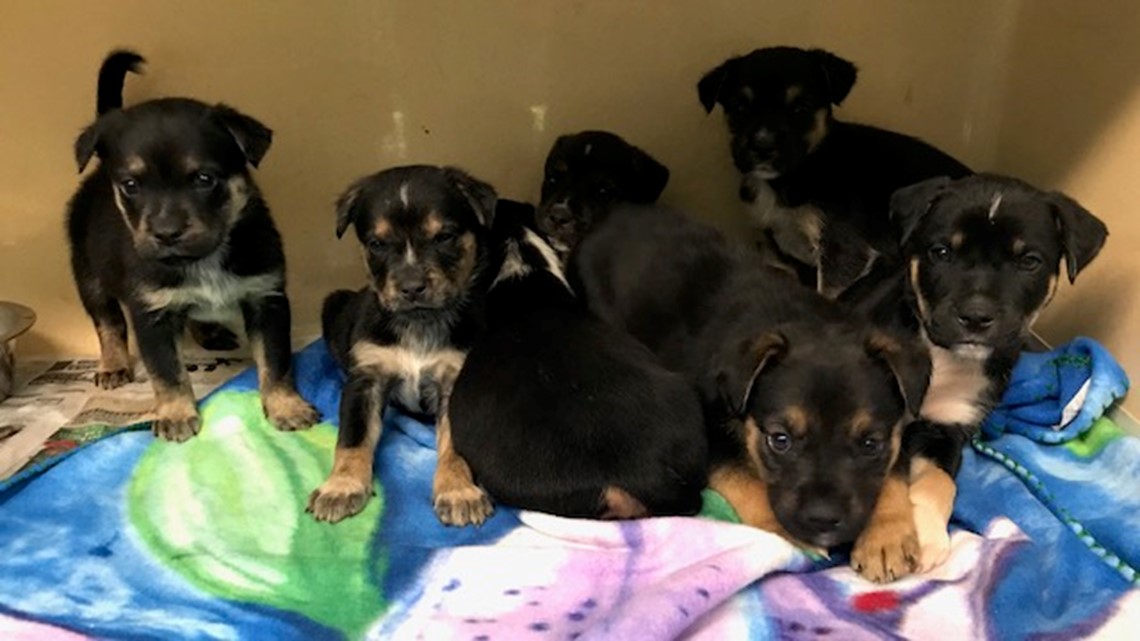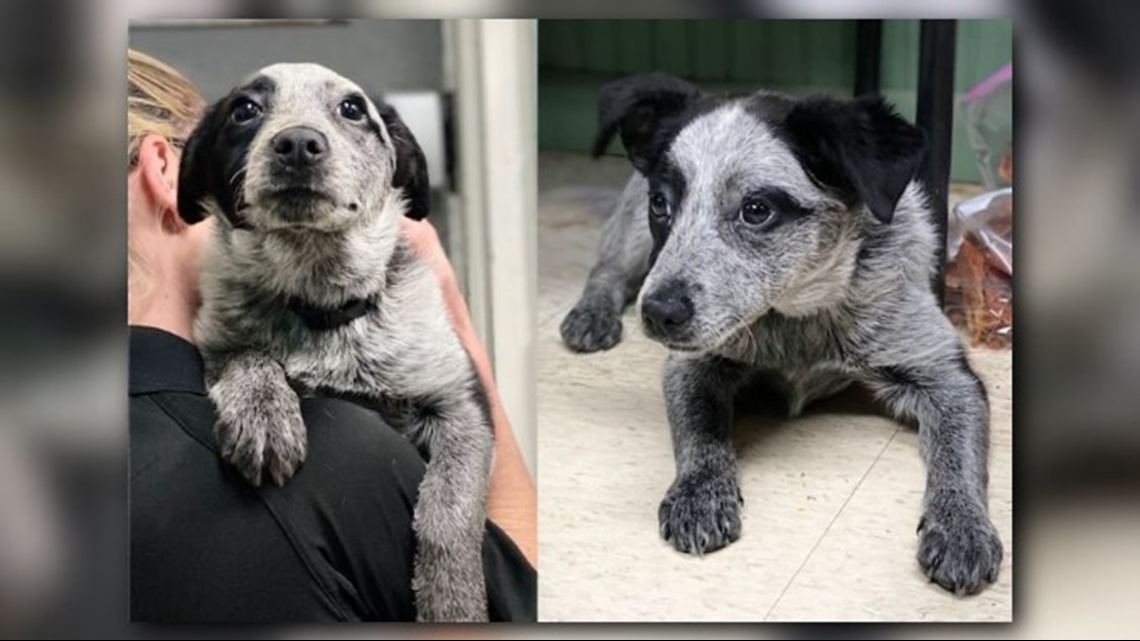HABERSHAM COUNTY, Ga. — Cuddly canines have turned into dangerous dogs, or at least that’s the claim some are using to get animal control to take them away.
Habersham County Animal Control says it’s noticed an uptick in dangerous dog calls, which it attributes to the fear of COVID-19 and financial strain.
Shelter Director Madi Nix says she had to stop taking owner surrenders to protect her staff from the virus and maintain social distance orders.
Nix says that hasn’t stopped people from dumping their animals, like a cage full of puppies, at their front gate. And she believes people are making fake 911 calls to report their own dogs as aggressive strays, since they know animal control will still respond to public safety concerns.


But Nix says in some cases, these calls are putting her staff at risk. An officer trying to capture what was reported as a stray and aggressive dog actually had to run into a house to get it. He didn’t have time to put on protective gear.
Eight people were staying inside the house and the dog ended up being an unwanted pet, not a stray. The owner of the dog was given a citation.
Nix says her officers seized 15 ‘aggressive’ dogs last week, more than double the calls they normally receive. After temperament tests at the shelter, none were actually deemed aggressive.
A family tried to get rid of a 3-month old cattle dog. When animal control wouldn’t take the dog, they called 911 to say it was an aggressive stray that tried to bite them.
After testing the dog they found no aggressive tendencies.


COULD MY DOG GIVE ME COVID-19?
“It would be very, very, very -- let me stress that -- very difficult for anyone to get COVID-19 from their pet,” said Dr. Jay Tischendorf, a wildlife biologist and veterinarian.
Tischendorf is studying the two cases to come out of China and now one in Belgium. He says in all of the cases, it appears to be human to animal transmission, not the other way around. But he says there aren’t enough cases or testing to understand the actual risks.
Tischendorf says the best advice is to treat your pet, the same as you would anyone else in your household. It’s the same advice the CDC currently offers.
“Wash their hands before and after handling pets and certainly if you’re sick, make extra effort not to make contact," said Tischendorf.
Tischendorf says instead of being afraid of your pets, take advantage of the time you have at home with them. Wipe them down regularly with an animal safe cleaning cloth or give them baths.
He also encourages people to take them for walks and play with them. It’s good exercise and a stress reliever.
MAKE A PLAN
Claudine Wilkins, an attorney with Animal Law Source, says people need to come up with a plan now for what they’ll do with their pets if they become ill, or even financially strapped. Pick a trusted family member or friend that can take care of your animals until you’re back on your feet.
Other things to consider, especially if you live alone are accessibility, vet information, special instructions, and identification.
Make sure there is a way your selected animal caregiver can access your house if you have to go to the hospital abruptly.
Get them the information now about your vet, any special food your animal may need or medications.
Make sure your animal is wearing a collar and that microchip information is up to date.
RESOURCES TO HELP
With businesses shut down, some families can’t afford food. Wilkins says there are programs that can help. Your first call should be the county shelter, which should have a list of resources in your area. Pet Buddies Food Pantry, Pets For Life, the Cobb County Pet Food Donation Pantry (call: 770-499-4136 for more info) or area food banks may also be able to help.
While most shelters in metro Atlanta have not yet reported the same problem as Habersham, they do have animals in need of homes and several fundraisers scheduled for this spring had to be canceled.
With the need growing, they’re encouraging anyone who is in a position to donate or adopt, to help out. Most adoptions are being done by appointment or online.
Whatever you do, Nix says, tossing a cat or dog onto the street is not a solution.
“These animals could be hungry and go after somebody else’s pet because they’re out of resources. They could bite somebody,” said Nix.
That sort of move would be creating an aggressive dog -- for real.

